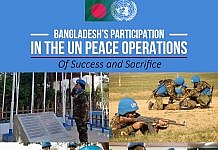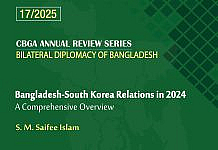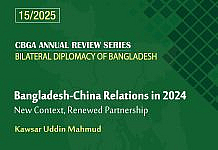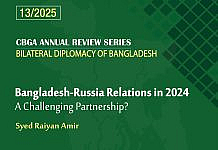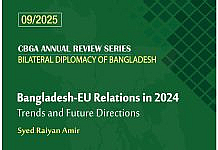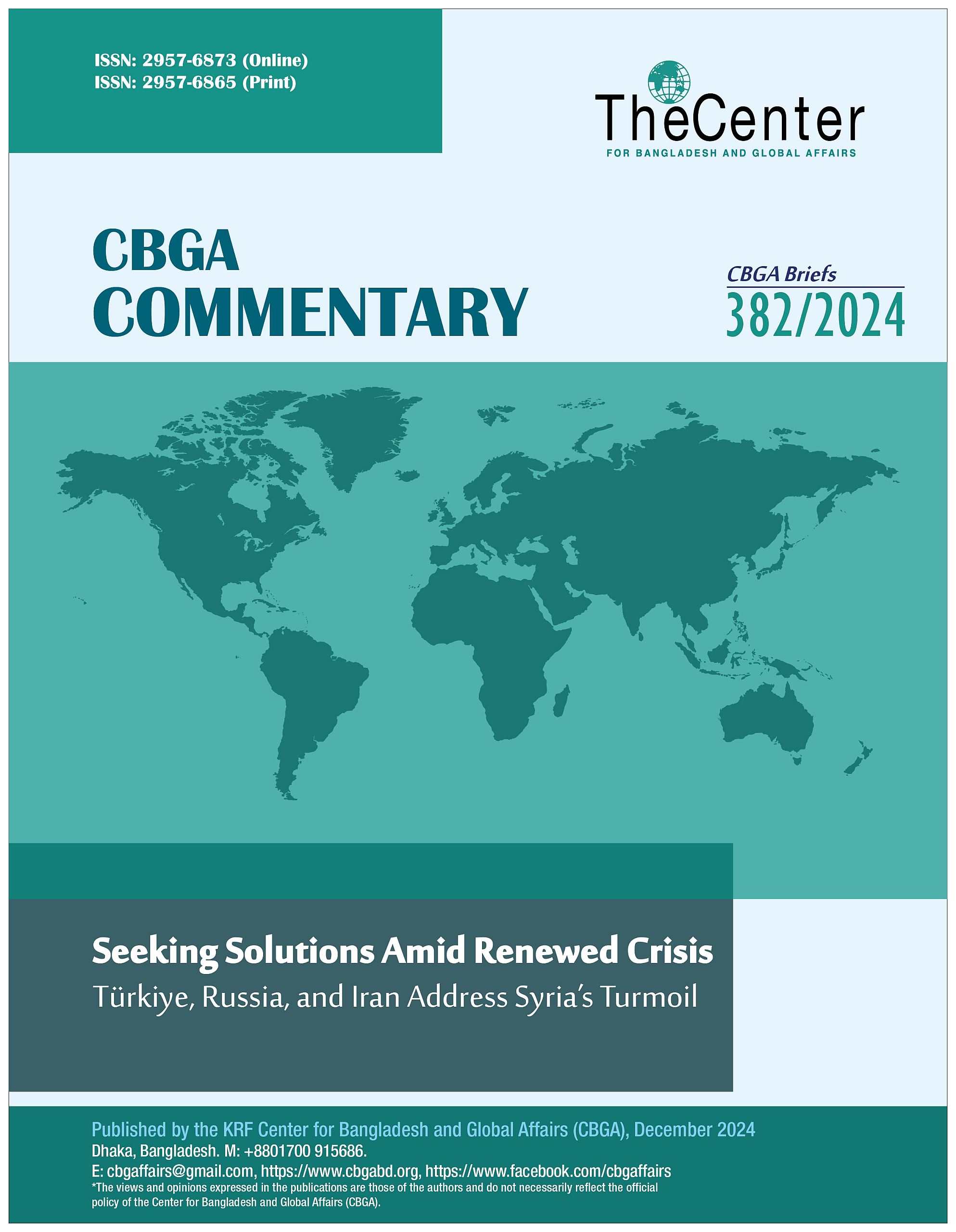
As Syria plunges into another chapter of its prolonged conflict, the regional powers of Türkiye, Russia, and Iran converge in Doha to navigate the complexities of renewed fighting and political deadlock. This meeting underscores the delicate balance of regional alliances and rivalries, as each nation aims to shape Syria’s future while safeguarding its own strategic interests.
In a meeting held in Doha on Saturday, December 7, Russia, Iran, and Türkiye called for immediate negotiations between the Syrian government and opposition forces to address the escalating violence. The gathering of foreign ministers from these key regional players comes as fighting in Syria has intensified in recent weeks, with opposition forces making significant advances.
Iranian Foreign Minister Abbas Araghchi highlighted the consensus reached, stating, “All the participants agreed that the conflicts should end immediately”. He emphasized the importance of initiating political dialogue, saying it was critical to engage “the Syrian government and legitimate opposition groups”.
Russian Foreign Minister Sergey Lavrov underscored the urgency of halting hostilities, describing the primary goal as to “stop the fighting”. Lavrov reiterated Russia’s stance on supporting Syria’s regime, asserting that Moscow would counter militant efforts to disrupt the balance and continue backing “the legitimate Syrian authorities”.
Türkiye’s President Recep Tayyip Erdoğan also weighed in during a speech the same day, declaring that “Turkey is on the right side of history.” He expressed hope for a Syria where diverse identities could live together peacefully, adding, “We hope to see such a Syria in the very near future”.
Meanwhile, opposition forces have capitalized on regional instability, advancing to within 20 kilometers of Damascus’ southern gate, marking a turning point in the conflict.
Astana Partners in a Fractured Alliance
Since 2017, Türkiye, Russia, and Iran have been partners in the Astana process, a diplomatic framework established to mediate Syria’s civil war. Yet, their battlefield allegiances often reflect deep divisions. Russia and Iran remain staunch supporters of Syrian President Bashar al-Assad, bolstering his regime militarily to suppress opposition forces. Türkiye, on the other hand, backs opposition groups while prioritizing its national security against the PKK/YPG, a Kurdish group it considers a terrorist organization.
The Doha meeting is emblematic of this complex dynamic. Moscow’s Sergei Lavrov, Ankara’s Hakan Fidan, and Tehran’s Abbas Araghchi convene not as unified allies but as stakeholders grappling with diverging visions for Syria. While Russia and Iran aim to solidify Assad’s position, Türkiye seeks stability, envisioning a politically unified Syria that accommodates returning refugees and curtails Kurdish autonomy near its borders.
Ankara’s proximity to the Syrian crisis, both geographically and politically, is unmatched. Sharing a 900-kilometer border and hosting nearly 3 million Syrian refugees, Türkiye’s stakes are high. President Recep Tayyip Erdoğan has called for Assad to reconcile with his people, signaling a shift from outright regime change to pragmatic engagement. However, Assad’s rejection of dialogue has frustrated even his allies, particularly Russia, which views his intransigence as an obstacle to broader regional cooperation.
Regional Stability and the Power Vacuum
A central theme of the discussions is the power vacuum exacerbated by renewed fighting. Assad’s inability to consolidate control has alienated his allies, including Iran, which is reportedly dissatisfied with his perceived indifference following the death of Hezbollah leader Hassan Nasrallah. Meanwhile, Türkiye and Russia appear to be exploring the feasibility of a transitional government, one that excludes Assad but integrates elements of his regime alongside opposition factions.
This approach, however, faces hurdles. Assad’s refusal to compromise complicates efforts to mediate a political transition. At the same time, the resurgence of extremist groups like Daesh and the PKK/YPG poses a shared threat, necessitating coordinated counterterrorism measures. Iran’s broader regional aspirations and its rivalry with Türkiye add another layer of complexity, making consensus elusive.
Erdogan’s Vision for Syria
President Erdoğan has articulated Türkiye’s vision for Syria as a pluralistic state where diverse ethnic, sectarian, and religious identities coexist peacefully. His rhetoric emphasizes Syria’s territorial integrity and underscores Ankara’s commitment to stabilizing its neighbor while safeguarding national security.
Renewed fighting in northern Syria, particularly in Aleppo and Idlib, has highlighted the fragility of the ceasefire agreements brokered under the Astana process. The recent Operation Dawn of Freedom by the Syrian National Army, backed by Türkiye, reflects Ankara’s determination to neutralize the PKK/YPG while bolstering opposition forces. Erdoğan’s call for responsible international actors to support Syria’s stability resonates with his broader strategy of fostering a controlled environment conducive to refugee repatriation.
However, this vision hinges on pragmatic diplomacy and cooperation from key players, including Russia and Iran. Their support is critical to ensuring that any political transition does not exacerbate the conflict or create conditions for extremist groups to thrive.
The U.S. Role and Regional Implications
Türkiye’s diplomatic efforts extend beyond the Astana trio, as evidenced by Foreign Minister Hakan Fidan’s recent dialogue with U.S. Secretary of State Antony Blinken. Fidan emphasized the importance of preventing chaos in Syria from empowering terror organizations like Daesh and the PKK. He also highlighted Türkiye’s role in delivering humanitarian aid and called for realistic engagement between the Assad regime and opposition forces.
The U.S., while less directly involved in the Astana process, remains a key player in the broader geopolitical landscape. Its support for the Kurdish-led Syrian Democratic Forces (SDF) has been a point of contention with Türkiye, complicating Ankara’s efforts to address its security concerns.
Iran’s Strategic Calculations
For Iran, Syria represents a crucial link in its regional influence network. Tehran’s support for Assad is driven by its desire to maintain a corridor to Hezbollah in Lebanon and to counter U.S. and Israeli influence. However, Assad’s reluctance to cooperate with his allies has strained relations.
Iran’s participation in the Doha talks underscores its interest in shaping Syria’s post-conflict order, but its priorities often clash with those of Türkiye and Russia. While Tehran seeks to preserve its strategic foothold, it must navigate a diplomatic landscape increasingly dominated by shifting alliances and competing interests.
Challenges Ahead: Reconciling Divergent Agendas
The Doha meeting is unlikely to produce a definitive resolution to the Syrian crisis. The entrenched positions of Assad and his opponents, coupled with the divergent priorities of the Astana partners, pose significant challenges. However, the talks represent a critical step in addressing the immediate risks of renewed fighting, including the displacement of civilians and the resurgence of extremist groups.
Regional stability depends on the ability of Türkiye, Russia, and Iran to find common ground. This requires balancing their respective interests while fostering an inclusive political process that addresses the aspirations of the Syrian people.
As Syria’s civil war enters another turbulent phase, the stakes for regional actors are higher than ever. The outcome of these negotiations will not only shape Syria’s future but also redefine the geopolitical dynamics of the Middle East. For Türkiye, the path forward lies in leveraging its strategic position to build consensus among its partners while advocating for a stable, unified, and secure Syria.
– Syed Raiyan Amir is a Senior Research Associate at the KRF Center for Bangladesh and Global Affairs (CBGA).


